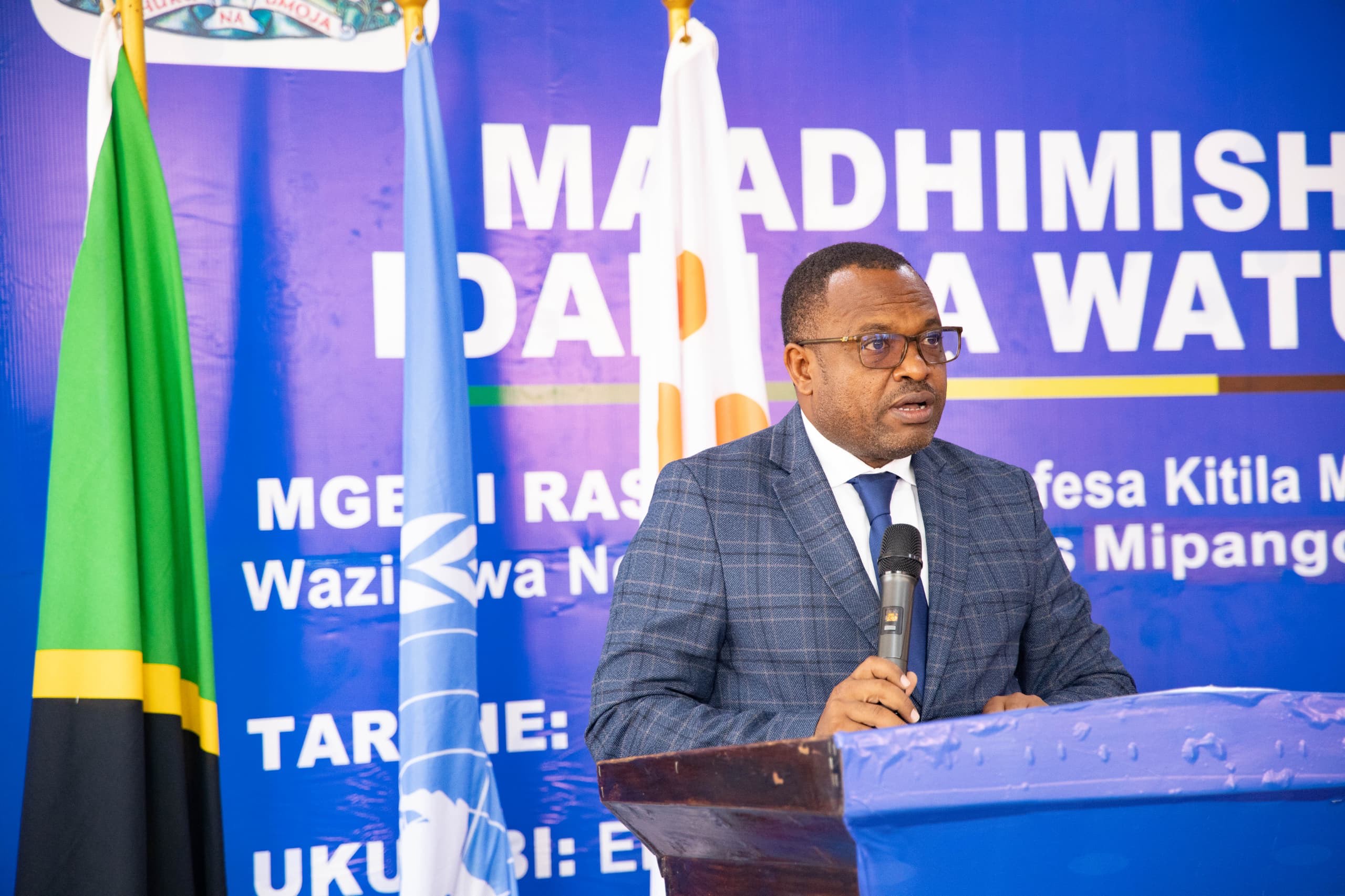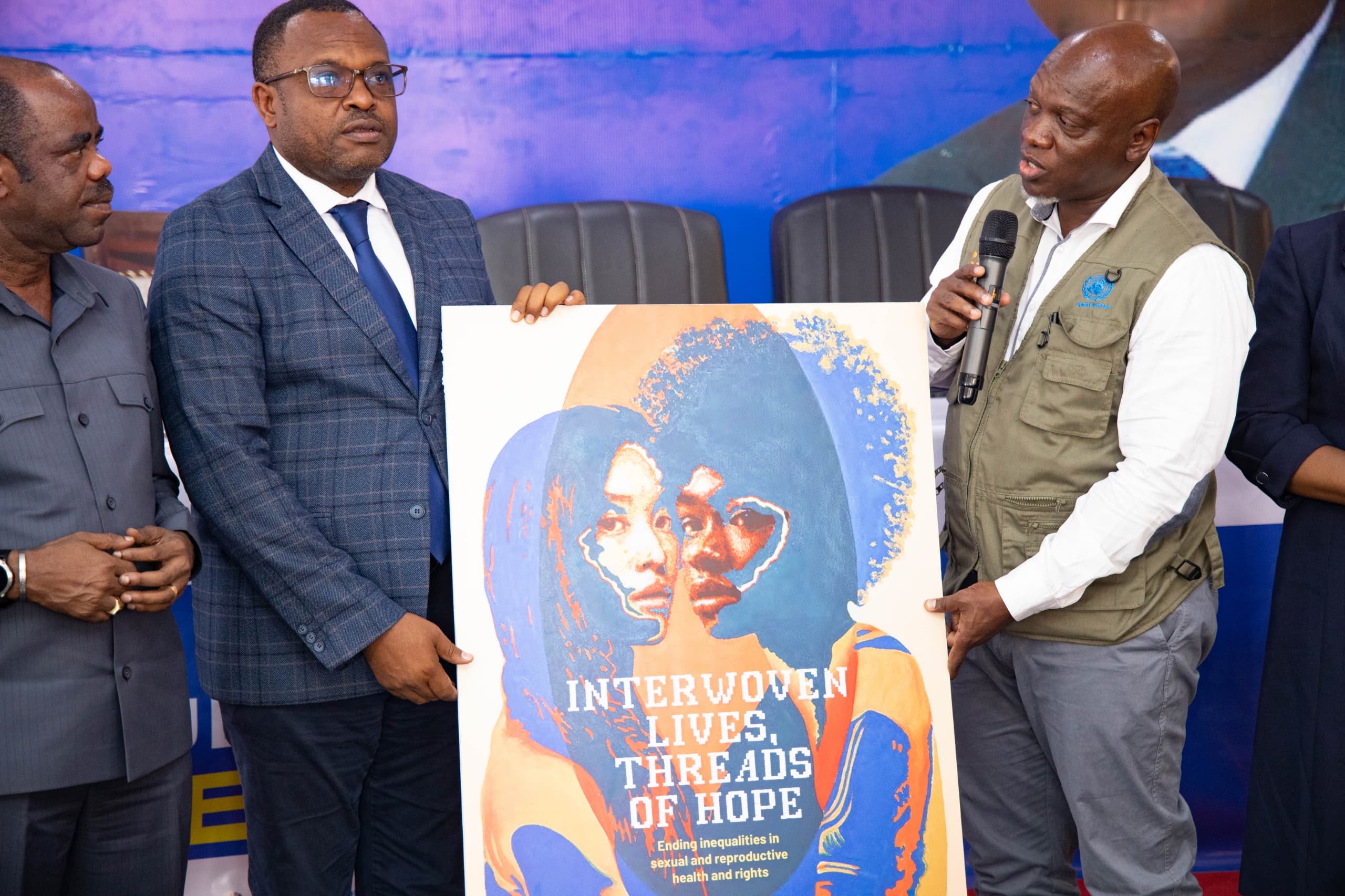Commemoration of World Population
“We cannot have effective policies and programs to bring about sustainable and equitable development for people without reliable data..”
Geita, Tanzania: The government will continue to ensure accessibility of accurate demographic statistics to bring citizens’ prosperity through various strategies to be entailed in the 2050 National Development Vision (NDV), said Hon. Stanslaus Nyongo (MP), the Deputy Minister of State, Office of the President, Planning and Investment, when officiating the World Population Day in Geita, the Hon Minister Nyongo emphasises that the use of precise population statistics has helped the government to execute a number of development projects, which are currently stimulating the country’s economic growth.

The World Population Day was nationally marked in Geita Region. He said the government has been able to execute a number of development project through the National Development Vision, which ends in 2025.
“Under the current National Development Vision, the government has been able to execute various development projects in water, health infrastructure, energy, education and many other sectors,”
He mentioned some of major projects as the construction of hospitals, flyovers, roads, bridges, schools and many other in various areas in the country. Mr Nyongo said this year, the day is being observed, with the theme " Embracing the power of inclusive data towards a resilient and equitable future for all" which emphasises the importance of inclusive data collection to ensure that everyone is fairly represented in population counts, regardless of background, nationality, geography, or socioeconomic standing.
“We cannot have effective policies and programs to bring about sustainable and equitable development for people without reliable data,” Mr Nyongo said.
The deputy minister added that it is through demographic statistics the government understands the needs of the society, identify people’s challenges and address them.
“The government has successfully managed to execute various project through NDV. It is through NDV, and accurate demographic statistics, the government has been able to address challenges in the health, water, education, aviation and many other sectors,” Said Hon. Stanslaus Nyongo,.
Mr Nyongo asked Tanzanians to fully participate in giving views ahead of the writing the 2050 NDV. “We are already in the process of preparing a 2050 National Development Vision that will carry the dreams and hopes of Tanzanians for many years to come, the government is therefore asking and inviting you to give out your views,” he said. He urged civil society organisations to encourage citizens to turn out in number to participate in the process.
On his part, Geita Regional Commissioner, Mr Martin Shigella commended President Dr Samia Suluhu Hassan for her efforts to improve wellbeing of Tanzanians in various areas including health, education, water and many others. Regarding the region’s rapid population growth, which stands at 5.4 per cent, the RC said the growing economy and the good climate of doing business in the region have been attracting many people in the region.

The United Nations Population Fund (UNFPA) Assistant Representative, Dr Majaliwa Marwa, emphasized on the importance of inclusive data systems to ensure no one is left behind. UNFPA had a priviledge opportunity to launch its flagship report the state of world population titled, Interwoven Lives, Threads of Hope: Ending inequalities in sexual and reproductive health and rights. )
In it, we show that, yes, inequalities are widening. Human reproduction is being politicized. The rights of women, girls and gender diverse people are the subject of increasing pushback. Yet we can, and we must, push forward – together – because that is what works.
“One important reason, our report shows, is that we have not prioritized reaching those furthest behind. We see, for example, that barriers to health care fell fastest for women who are more affluent, educated and privileged. When we look at ethnic disparities, we see that the groups that have benefitted the most are those that had the fewest barriers to begin with”. Said Dr. Majaliwa Marwa, UNFPA Assistant Representative, United Republic of Tanzania.
Our report shows how investing in sexual and reproductive health benefits all of us. We have every reason to act – for human rights, for gender equality, for justice and for the world’s bottom line. Our strength, our resilience comes not from any individual strand but from the collective, interwoven whole. The way forward, how we proceed and succeed, is by working together.
World Population Day 2024 is a moment to ask who is still going uncounted and why – and what this costs individuals, societies and our global efforts to leave no one behind. It is also a moment for all of us to commit to doing more to ensure that our data systems capture the full range of human diversity so that everyone is seen, can exercise their human rights and can reach their full potential.
Thirty years on from Cairo, there’s much to be celebrated but still much work to be done. People may be hard to reach, but no one is unreachable. To realize the rights and choices of those pushed to the margins of our societies, we have to count them – because everyone counts. Our rich human tapestry is only as strong as the weakest thread. When data and other systems work for those on the margins, they work for everyone. This is how we accelerate progress for all.
Tanzania's population has been on a consistent upward growth trajectory since the first census in 1967. Over a 55 year period, the population has grown from 12.3 million people in 1967 to 61.7 million in 2022. This growth, primarily fuelled by high fertility rates, presents a double-edged sword for the nation; potential challenges in the absence of strategic investments - or opportunities for propelling the country towards achieving its national development aspirations. At the current population growth rate of 3.2%, Tanzania’s population is projected to double in just 22 years, reaching approximately 123.4 million people by 2044. This could pose significant challenges, as a rapidly growing population strains resources, hinders economic progress, and exacerbates the dependency ratio – currently 87 dependents per 100 working-age individuals. This places an immense burden on the economy and social services, diverting resources from crucial investments that could spur job creation and overall development.
UNFPA, the United Nations Population Fund, continues to work with Government and partners, including to invest in Tanzania’s young people particularly in their health and education. Catalyzing the creation of optimal human capital will ultimately pave the way for Tanzania to reap the rewards of the demographic dividend. The possibilities for tomorrow are infinite. Tanzania’s prosperous future is intrinsically linked to choices made today amidst a rapidly growing population. By striking a delicate balance between quantity and quality, investing in human capital, and adopting a multi-sectoral approach, Tanzania can transform its demographic landscape into a powerful engine for sustainable development.


